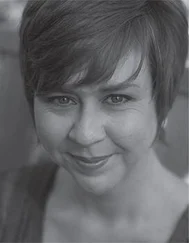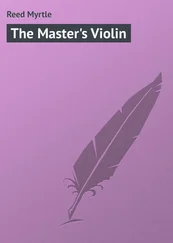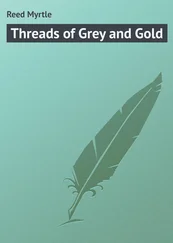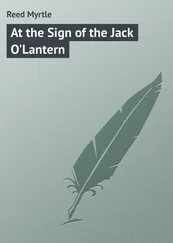Myrtle Reed - Master of the Vineyard
Здесь есть возможность читать онлайн «Myrtle Reed - Master of the Vineyard» — ознакомительный отрывок электронной книги совершенно бесплатно, а после прочтения отрывка купить полную версию. В некоторых случаях можно слушать аудио, скачать через торрент в формате fb2 и присутствует краткое содержание. Жанр: foreign_prose, на английском языке. Описание произведения, (предисловие) а так же отзывы посетителей доступны на портале библиотеки ЛибКат.
- Название:Master of the Vineyard
- Автор:
- Жанр:
- Год:неизвестен
- ISBN:нет данных
- Рейтинг книги:3 / 5. Голосов: 1
-
Избранное:Добавить в избранное
- Отзывы:
-
Ваша оценка:
- 60
- 1
- 2
- 3
- 4
- 5
Master of the Vineyard: краткое содержание, описание и аннотация
Предлагаем к чтению аннотацию, описание, краткое содержание или предисловие (зависит от того, что написал сам автор книги «Master of the Vineyard»). Если вы не нашли необходимую информацию о книге — напишите в комментариях, мы постараемся отыскать её.
Master of the Vineyard — читать онлайн ознакомительный отрывок
Ниже представлен текст книги, разбитый по страницам. Система сохранения места последней прочитанной страницы, позволяет с удобством читать онлайн бесплатно книгу «Master of the Vineyard», без необходимости каждый раз заново искать на чём Вы остановились. Поставьте закладку, и сможете в любой момент перейти на страницу, на которой закончили чтение.
Интервал:
Закладка:
She remembered vividly every word and every look and that first shy kiss. Of course they belonged together! How foolish they had been not to see it before! Was she not the only woman he knew, and was he not the only man to whom she could say more than "How do you do?" God had meant it so from the beginning, ever since He said: "Let there be light, and there was light."
Dreaming happily, Rosemary sat on the fallen tree, leaning against the great oak that towered above her. The first pink leaves had come out upon the brown branches, and through them she could see the blue sky, deep as turquoise, without a single cloud. It seemed that she had always been happy, but had never known it until this new light shone upon her, flooding with divine radiance every darkened recess of her soul.
She went to the hollow tree, took out the wooden box, and unwound the scarlet ribbon. Yesterday, little dreaming of the portent that for once accompanied the signal, she had tied it in its accustomed place, and gone back, calmly to wait. The school bell echoed through the valley as she stood there, her eyes laughing, but her mouth very grave. She had taken two or three steps toward the birches when an unwonted shyness possessed her, and she hurried back.
"I can't," she said to herself. "Oh, I can't – to-day!"
So she restored it to its place, wondering, as she did so, why love should make such mysterious changes in the common things of every day. Won and awakened though she was, her womanhood imperatively demanded now that she must be sought and never seek, that she must not even beckon him to her, and that she must wait, according to her destiny, as women have waited since the world began.
Yet it was part of the beautiful magic of the day that presently he should come to her, unsummoned save by her longing and his own desire.
"Where is the ribbon?" he inquired, reproachfully, when he came within speaking distance.
"Where it belongs," she answered, with a flush.
"Didn't you want me to come?"
"Of course."
"Then why didn't you hang it up?"
"Just because I wanted you to come."
Alden laughed at her feminine inconsistency, as he took her face between his hands and kissed her, half-shyly still. "Did you sleep last night?" he asked.
"Yes, but I had a horrible dream. I was glad to wake up this morning."
"I didn't sleep, so all my dreams were wakeful ones. You're not sorry, are you, Rosemary?"
"No, indeed! How could I ever be sorry?"
"You never shall be, if I can help it. I want to be good to you, dear. If I'm ever otherwise, you'll tell me so, won't you?"
"Perhaps – I won't promise."
"Why not?"
"Because, even if you weren't good to me, I'd know you never meant it." Rosemary's eyes were grave and sweet; eloquent, as they were, of her perfect trust in him.
He laughed again. "I'd be a brute not to be good to you, whether I meant it or not."
"That sounds twisted," she commented, with a smile.
"But it isn't, as long as you know what I mean."
"I'll always know," sighed Rosemary, blissfully leaning her head against his shoulder. "I'll always understand and I'll never fail you. That's because I love you better than everything else in the world."
"Dear little saint," he murmured; "you're too good for me."
"No, I'm not. On the contrary, I'm not half good enough." Then, after a pause, she asked the old, old question, first always from the lips of the woman beloved: "When did you begin to – care?"
"I must have cared when we first began to come here, only I was so blind I didn't know it."
"When did you – know?"
"Yesterday. I didn't keep it to myself very long."
"Dear yesterday!" she breathed, half regretfully.
"Do you want it back?"
She turned reproachful eyes upon him. "Why should I want yesterday when I have to-day?"
"And to-morrow," he supplemented, "and all the to-morrows to come."
"Together," she said, with a swift realisation of the sweetness underlying the word. "Yesterday was perfect, like a jewel that we can put away and keep. When we want to, we can always go back and look at it."
"No, dear," he returned, soberly; "no one can ever go back to yesterday." Then, with a swift change of mood, he asked: "When shall we be married?"
"Whenever you like," she whispered, her eyes downcast and her colour receding.
"In the Fall, then, when the grapes have been gathered and just before school begins?"
He could scarcely hear her murmured: "Yes."
"I want to take you to town and let you see things. Theatres, concerts, operas, parks, shops, art galleries, everything. If the crop is in early, we should be able to have two weeks. Do you think you could crowd all the lost opportunities of a lifetime into two weeks?"
"Into a day, with you."
He drew her closer. This sort of thing was very sweet to him, and the girl's dull personality had bloomed like some pale, delicate flower. He saw unfathomed depths in her grey eyes, shining now, with the indescribable light that comes from within. She had been negative and colourless, but now she was a lovely mystery – a half-blown windflower on some brown, bare hillside, where Life, in all its fulness, was yet to come.
"Did you tell your Grandmother and Aunt Matilda?"
"No. How could I?"
"You'd better not. They'd only make it hard for you, and I wouldn't be allowed in the parlour anyway."
Rosemary had not thought of that. It was only that her beautiful secret was too sacred to put into words. "They'll have to know some time," she temporised.
"Yes, of course, but not until the last minute. The day we're to be married, you can just put on your hat and say: 'Grandmother, and Aunty, I'm going out now, to be married to Alden Marsh. I shan't be back, so good-bye."
She laughed, but none the less the idea filled her with consternation. "What will they say!" she exclaimed.
"It doesn't matter what they say, as long as you're not there to hear it."
"Clothes," she said, half to herself. "I can't be married in brown alpaca, can I?"
"I don't know why not. We'll take the fatal step as early as possible in the morning, catch the first train to town, you can shop all the afternoon to your heart's content, and be dressed like a fine lady in time for dinner in the evening."
"Grandmother was married in brown alpaca," she continued, irrelevantly, "and Aunt Matilda wore it the night the minister came to call."
"Did he never come again?"
"No. Do you think it could have been the alpaca?"
"I'm sure it wasn't. Aunt Matilda was foreordained to be an old maid."
"She won't allow anyone to speak of her as an old maid. She says she's a spinster."
"What's the difference?"
"I think," returned Rosemary, pensively, "that an old maid is a woman who never could have married and a spinster is merely one who hasn't."
"Is it a question of opportunity?"
"I believe so."
"Then you're wrong, because some of the worst old maids I've ever known have been married women. I've seen men, too, who deserve the title."
"Poor Aunt Matilda," Rosemary sighed; "I'm sorry for her."
"Why?"
"Because she hasn't anyone to love her – because she hasn't you. I'm sorry for every other woman in the world," she concluded, generously, "because I have you all to myself."
"Sweet," he answered, possessing himself of her hand, "don't forget that you must divide me with mother."
"I won't. Will she care, do you think, because – " Her voice trailed off into an indistinct murmur.
"Of course not. She's glad. I told her this morning."
Читать дальшеИнтервал:
Закладка:
Похожие книги на «Master of the Vineyard»
Представляем Вашему вниманию похожие книги на «Master of the Vineyard» списком для выбора. Мы отобрали схожую по названию и смыслу литературу в надежде предоставить читателям больше вариантов отыскать новые, интересные, ещё непрочитанные произведения.
Обсуждение, отзывы о книге «Master of the Vineyard» и просто собственные мнения читателей. Оставьте ваши комментарии, напишите, что Вы думаете о произведении, его смысле или главных героях. Укажите что конкретно понравилось, а что нет, и почему Вы так считаете.












